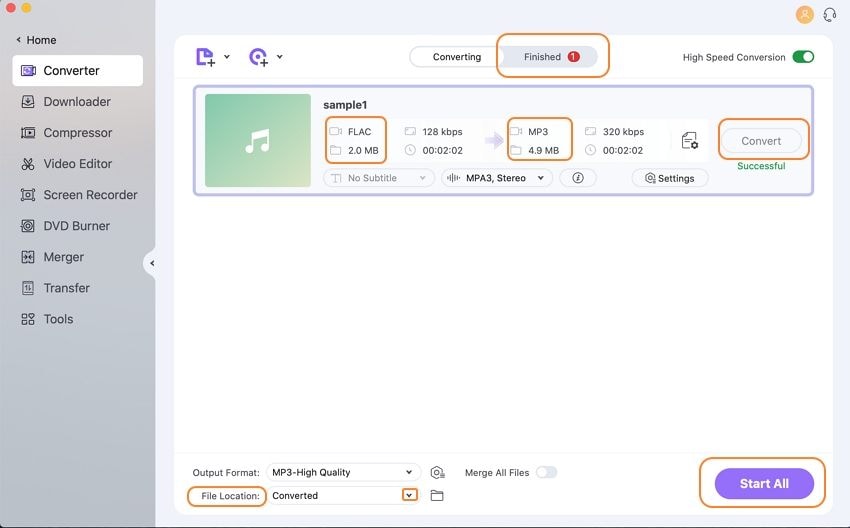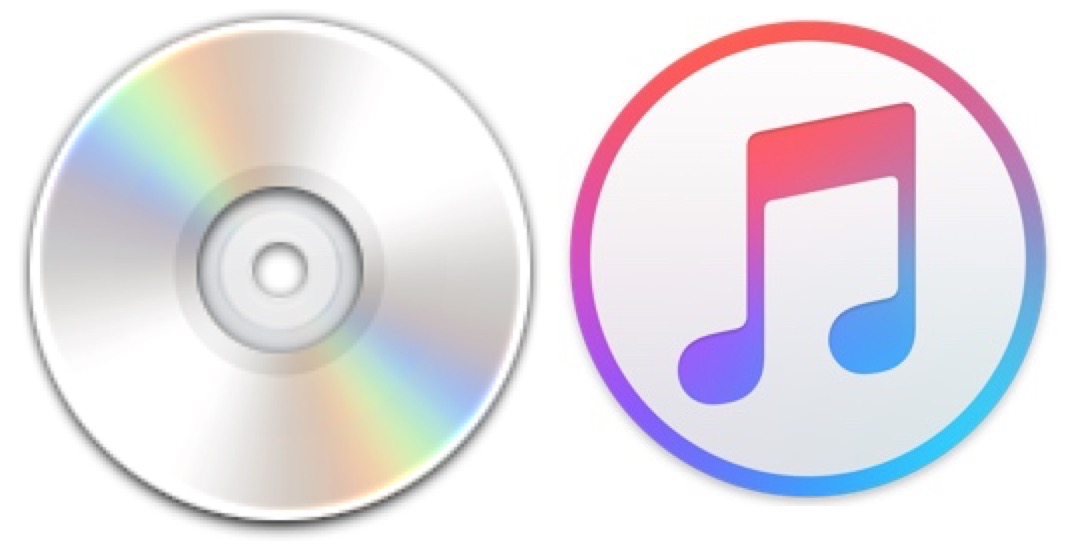
WAV files do not support metadata tagging. However, they do take up more hard drive storage space than AAC, MP3 or Apple Lossless. Uncompressed WAV files can be ripped and played back in iTunes and are very high quality. Some places offer them as "hi-def" or "studio masters". WAV files can also store high-resolution music files at greater bit and sampling rates than CDs. Ripping a CD and storing it as an uncompressed WAV results in a bit-perfect clone – identical to the original CD. WAV is capable of storing Linear PCM audio (the digital encoding format used on CDs) in uncompressed form.

ALC fully supports metadata tagging, which is great for searching your collection. It's worth noting that iOS only supports up to 44.1kHz audio, so if you intend to transfer any of these to your phone, be careful to not use 96kHz settings.
#RIP CD TO FLAC CONVERTER FOR MAC ANDROID#
The Apple Lossless Audio Codec (Alac) was open-sourced in 2011, so there is relatively good support, with iTunes on OS X and Windows, Music on iOS, and third-party audio players such as PowerAmp on Android offering support. It restores to a bit-perfect replica of the original music file for playback. This Apple file format option in iTunes can reduce the stored data by almost 50%. iTunes is also pretty good at detecting your music and automatically populating your library with metadata where supported.īelow is an overview of the various lossless formats: Apple Lossless Compression When ripping CDs to your iTunes library you can choose higher bit-rate MP3 and AAC (192kbps or 320kbps), an uncompressed audio format such as Aiff or a lossless compression format like Apple Lossless. But lossless formats often take up much more space on disk (up to about 11Mb/min), and are not supported by most online music lockers, including Google Music. Thankfully, iTunes supports some lossless (compressed and uncompressed) formats, including Aiff, Wav and Apple Lossless.

Today, higher bit-rate MP3 and AACs are much better than they were.

This is due to historically low bit-rates in lossy consumer music formats like MP3 or AAC (a lossy compression format is one that permanently removes some of the file's data in some cases it will remove more data than it leaves behind). To the audiophile market and to a lesser extent for some music lovers, digital music has a pretty bad name. Do you think this is practicable? Also, would Apple Lossless be the best format to choose to temporarily compress Aiff or Wav files for storage, in order to uncompress them for playback later? Also, to stream music to hi-fi etc, are these files the best formats to use, or are they problematical? Michael, via emailĪ When ripping your CD library, it's important to choose the best storage format to preserve your music collection's original quality. If I were to rip the collection as a backup to an external drive and/or place the files in the cloud, I would want to retain the quality with Aiff/Wav or compression to Apple Lossless (m4a) with the idea of being able to convert back to the uncompressed original in due course. Q My large (1,500-strong) CD collection consists of classical music and jazz.


 0 kommentar(er)
0 kommentar(er)
